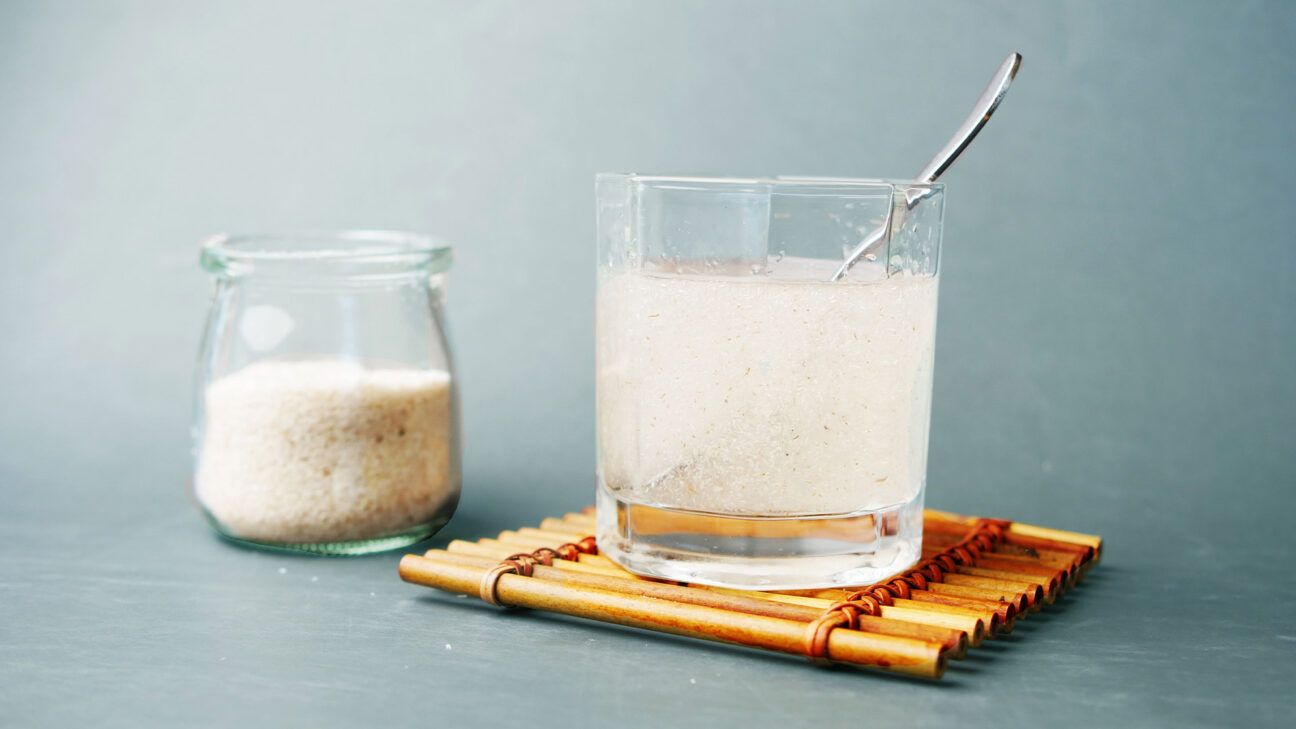
- Many people are using psyllium husk fiber as an inexpensive alternative to Ozempic.
- Proponents claim it can provide a similar effect in suppressing appetite.
- However, experts say the two do not work in the same way.
- Psyllium does not have the same proven ability to help with weight loss as Ozempic.
- It can also cause gastrointestinal side effects and may interact with some medications.
While Ozempic is currently only approved for the treatment of type 2 diabetes, its off-label use for weight loss has created much media buzz as well as skyrocketing demand for the drug. This demand has contributed to shortages of the medication.
Additionally, without insurance, it is also quite expensive, averaging about $900 for a month’s supply. This has left eager consumers searching for cheaper substitutes.
One alternative that’s being touted as a “poor man’s Ozempic” is psyllium husk fiber. At around $16 for a 24-ounce container, this supplement is affordable for most people. It is also easy to obtain at your local grocery, drug store, or discount department store.
Proponents of psyllium like TikToker masteringdiabetes claim that the bulk created by psyllium can trigger stretch receptors in your small and large intestines, sending a signal to your brain to reduce your appetite in a similar way to how drugs like Ozempic and Wegovy work.
But, does psyllium really work like Ozempic does for weight loss?
Can psyllium have the same effect as Ozempic?
Dr. Robert Alesiani, Chief Pharmacotherapy Officer at Tabula Rasa HealthCare, said that both fiber supplements like psyllium and medications like Ozempic can suppress appetite. However, they do so by two different mechanisms.
According to Alesiani, psyllium is considered to be a bulk-forming laxative.
“When taken with water or juice,” he explained, “these supplements will absorb and swell into a soluble gelatinous mass in the stomach. While in the stomach, the swelling gives the impression of fullness, temporarily easing one’s appetite until the fiber passes into the intestines.”
On the other hand, Alesiani said, semaglutide is a glucagon-like peptide-1 (GLP-1) agonist. It can target the appetite centers of the brain, creating prolonged satiation and feelings of fullness.
It can also slow stomach and intestinal emptying, which can extend the feeling of fullness after eating.
What are the weight loss benefits of psyllium compared to Ozempic?
Dr. Steven Batash of Batash Endoscopic Weight Loss said there are a couple of ways that psyllium might potentially aid in weight management.
“First, its water-absorbing properties create a gel-like substance in the stomach, enhancing feelings of fullness. This can lead to reduced caloric intake as individuals may feel full sooner and for longer periods,” he said. “Secondly, psyllium might aid in stabilizing blood sugar, reducing the likelihood of hunger spikes and cravings.”
Having said this, however, Batash noted that he had not had much success when using fiber supplements for either weight loss or stabilizing blood sugar.
“I wouldn’t count on fiber supplements to help you lose weight,” he concluded.
On the other hand, we do know that Ozempic can help with weight loss.
“Studies involved with semaglutide over long periods of time have shown that the drug is safe and effective not only with weight loss but also long-term maintenance,” Alesiani noted.
Alesiani added that the drug can lead to a loss of about 15% to 20% of body weight over the course of about six months, which translates to about a 20- to 27-pound loss.
What are the health risks of using psyllium for weight loss?
If you do decide to give psyllium a try, Alesiani said there are a couple of precautions to be aware of.
One is that, although psyllium is natural and available without a prescription, there are some potential side effects, including:
To lessen the risk of constipation in particular, Alesiani advises drinking plenty of water when you take psyllium.
“When fiber is taken without adequate fluid, the supplement will find and absorb whatever moisture it may find in the bowels and can lead to dry, hard stools resulting in severe constipation,” he said.
Additionally, you should make sure to take psyllium away from any medications that it could interact with.
“Taking fiber supplements at the same time as certain drugs can reduce their absorption through engulfing the tablets and allowing them to pass through the intestines without being absorbed,” said Alesiani.
The types of medications that you need to be concerned about include:
- antidepressants
- some anti-coagulants
- thyroid supplements
- anticonvulsants
- digoxin
- metformin
- some antibiotics
Takeaway
While psyllium does have the ability to suppress appetite, it does not work in the way that Ozempic does.
Additionally, it might not be as effective in helping you lose weight.
If you do try psyllium, be aware that you can have certain gastrointestinal side effects, including nausea, constipation or diarrhea, flatulence, cramping, and gas pain. Drinking plenty of water with it can reduce your risk.
It’s also important to check with your doctor or pharmacist about whether psyllium can interfere with the absorption of any medications that you are using.
People Are Using Psyllium Husk Fiber as an Ozempic Alternative: Does It Work?
Source: Pinoy Lang Sakalam



0 (mga) komento:
Mag-post ng isang Komento